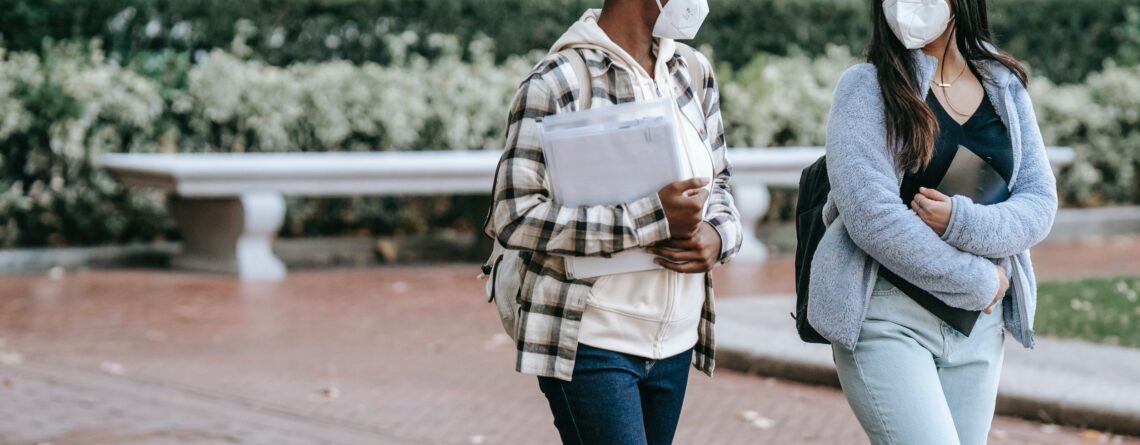Going Back to School After Remote Learning
The fall of 2021 will mark the beginning of the third school year that has been impacted by the COVID-19 pandemic. During the past year and a half, the isolation, uncertainties, and loss have affected virtually everyone – however, this time has been particularly stressful for students.
Remote Learning Considerations
In the spring of 2020, most schools across the country shifted to remote learning as the new pandemic caused a number of restrictions and shutdowns. Often, this shift was sudden and unexpected. Teachers and students alike were caught off guard and were not able to prepare appropriately for the transition.
Students lost ground in their academic progress during those last few months of the 2019-2020 school year. As the pandemic continued through the fall of 2020, the majority of classes continued to be held virtually. Although slightly more prepared, virtual learning was still challenging for students, their families, and their teachers.
However, some students actually fared better in the remote settings. Teenagers, especially, who were shy or uncomfortable around their peers, were more comfortable attending school online. In the fall of 2021, as the pandemic is still considered a major public health issue in the US, middle school and high school students are returning to the classroom, facing different challenges in their mental health and stress levels. As the delta variant becomes a rising public health concern, teens may have to deal with this re-entry process time and again.
Spikes in Depression and Anxiety
Overall, remote learning has increased mental health issues in teenagers who were isolated at home. Research over the past few months has pointed to alarming spikes in anxiety and depression among students and their parents. Studies also show that remote students are learning less than they would if they were in the classroom.
A survey in the fall of 2020 found that students who had been able to spend time in school, even part-time, reported lower rates of worry and stress than students who were learning completely online. Over half of the more than 10,000 students surveyed said they were more stressed in school in 2020, but the stress level was much more pronounced among those students attending school remotely. Their stress resulted in insomnia, headaches, and exhaustion, among other symptoms.
One junior at Yonkers Middle High School in New York said that it was stressful for him to worry about contracting COVID-19 at school, but that his online classes were wearing him down. The teenager stated, “When I’m at home, fully remote, it’s more like a sluggish feeling. I’m usually feeling distressed and tired, and I just don’t want anything to do with school anymore.”
Teenage Struggles
The teenage years are full of transition and growth. During the pandemic, the mental health challenges have been even greater for children and adolescents, as they have struggled emotionally with the isolation and uncertainty. Teens are social in nature but have been forced to deal with the loneliness of remote learning. The result has been an increase in anxiety and depression. In fact, a poll conducted in January by the CS Mott Children’s Hospital in Michigan found that over a third of teen girls and a fifth of teen boys now have new or worsening anxiety.
Going Back to School
For those students who preferred remote learning, the return to the classroom brings its own challenges. They will have to start interacting with their peers and their teachers in person for the first time in over 18 months. These students will be even more emotionally drained as they shift away from the online classroom. In areas that offer the option of remaining remote, these are the students who will probably choose to stay virtual.
Other students are eager to try to return to a “normal” school setting once again. They will also face challenges as they attempt to get back into a more comfortable routine that they will find is still disrupted with precautions such as mask requirements and social distancing.
Both groups of students will need time to adjust. They will need the support and encouragement of their family and their teachers as they ease back into the classroom setting. There will undoubtedly be even more anxiety during the first few days or weeks of the new school year, as everyone figures out how to make the shift back to school this fall.
Navigating the “New Normal”
Relearning how to navigate social lives in person, while staying safe and healthy, will be a struggle for some teens – especially if schools close and reopen again. Parents and teachers should watch for signs of withdrawal, irritability, anxiety, or depression among those students who have a difficult time going back to school after remote learning. Even those teens who were looking forward to reconnecting with friends in person may find that things are still far from the “normal” they remember, which can also be disturbing to a young, developing mind.
We’re Here to Help Your Teen During the Pandemic
At R&A Therapeutic Partners, we understand that the stress of the pandemic environment can cause significant challenges for teens and for the whole family. The link between teen anxiety and COVID-19 is a growing concern.
We provide family counseling and parenting support, as well as psychotherapy and therapeutic consulting services, to support you, your teenager, and your entire family’s mental health. We offer in-office and telehealth therapy options during COVID-19. We encourage you to contact the Miami therapeutic consultants Raymond Estefania and Ana Moreno to learn more about the services R&A Therapeutic Partners offers. Call us at 786-452-7352 to schedule your appointment.
At R&A Therapeutic Partners Raymond Estefania and Ana Moreno specialize in substance use and mental health disorder evaluations, treatment, intervention and therapeutic/educational consulting for clients throughout the greater South Florida area, as well as nationally and internationally. For more resources and information please visit Therapeutic-Partners.com or on Facebook.

